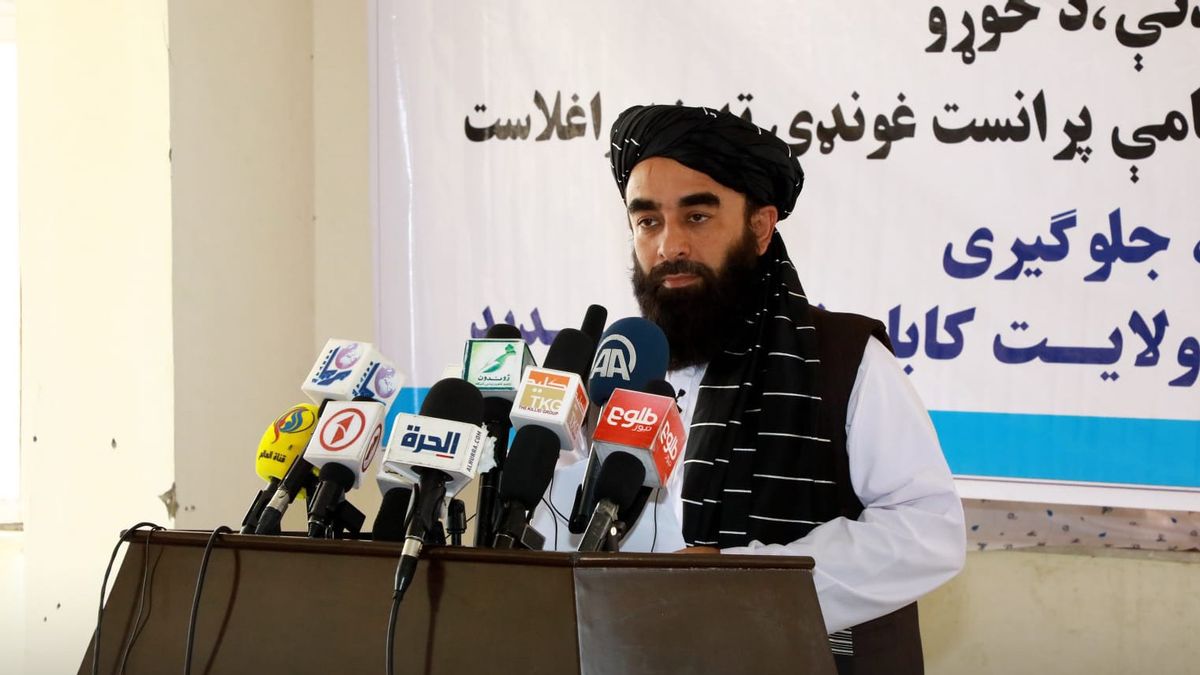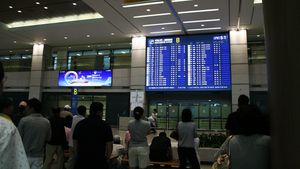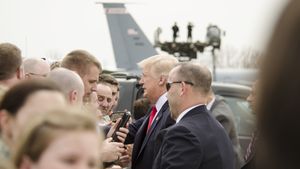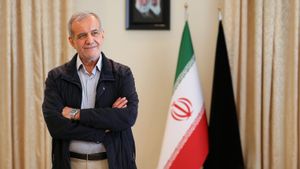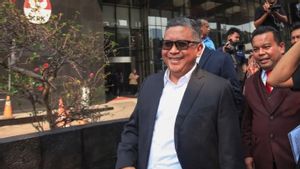JAKARTA - Taliban authorities have banned UN-appointed special whistleblower Richard Bennett from entering Afghanistan, a government spokesman told local broadcaster Tolo.
The ban is linked to allegations by the UN watchdog for human rights "spreading propaganda".
Taliban Government Foreign Ministry spokesman Abdul Qahar Balkhi told Reuters Bennett was "unable to obtain a travel visa to Afghanistan".
"Even after repeatedly asking Bennett to comply with professionalism while working. It was decided that his report was based on prejudice and anecdotes that hurt the interests of Afghanistan and the Afghan people," Balkhi said.
Bennett was appointed by the UN Human Rights Council to monitor Afghanistan's human rights situation by 2022, after the Taliban took over the previous year.
Bennett, who previously said the Taliban's treatment of women and girls could be considered a crime against humanity, based outside Afghanistan, but had visited several times to examine the situation.
The UN Human Rights Council did not immediately respond to a request for comment. Bennett could not immediately be reached for comment.
Meanwhile, Taliban government spokesman Zabihullah Mujahid previously said his group respected women's rights in accordance with its interpretation of Islamic law and local customs.
He told Tolo Bennett would not be allowed to come to Afghanistan, a rare public ban on individual foreign officials.
" Bennett's trip to Afghanistan has been banned because he was tasked with spreading propaganda in Afghanistan. He used to exaggerate over minor problems and spread them," Mujahid said, according to Tolo.
Three years after foreign forces withdrew from their rule, the Taliban government has not been officially recognized by any foreign government.
Foreign officials, including Washington, said the path to recognition was restrained until the Taliban changed course on women's rights, by barring most girls over 12 years of age from entering schools and universities, barring women from entering parks, and stopping most long-distance travel by women without male guardians.
Afghanistan's central bank assets have been frozen and many senior Taliban officials are subject to UN travel restrictions requiring them to seek exceptions to enter other countries.
SEE ALSO:
The United Nations has sought to find an integrated international approach to dealing with the Taliban.
In June, top UN officials and envoys from up to 25 countries met with the Taliban in Qatar, drawing criticism from human rights groups, for not including Afghan women and civil society representatives at the meeting.
The UN mission to Afghanistan also operates from Kabul and monitors and reports human rights issues.
The English, Chinese, Japanese, Arabic, and French versions are automatically generated by the AI. So there may still be inaccuracies in translating, please always see Indonesian as our main language. (system supported by DigitalSiber.id)
